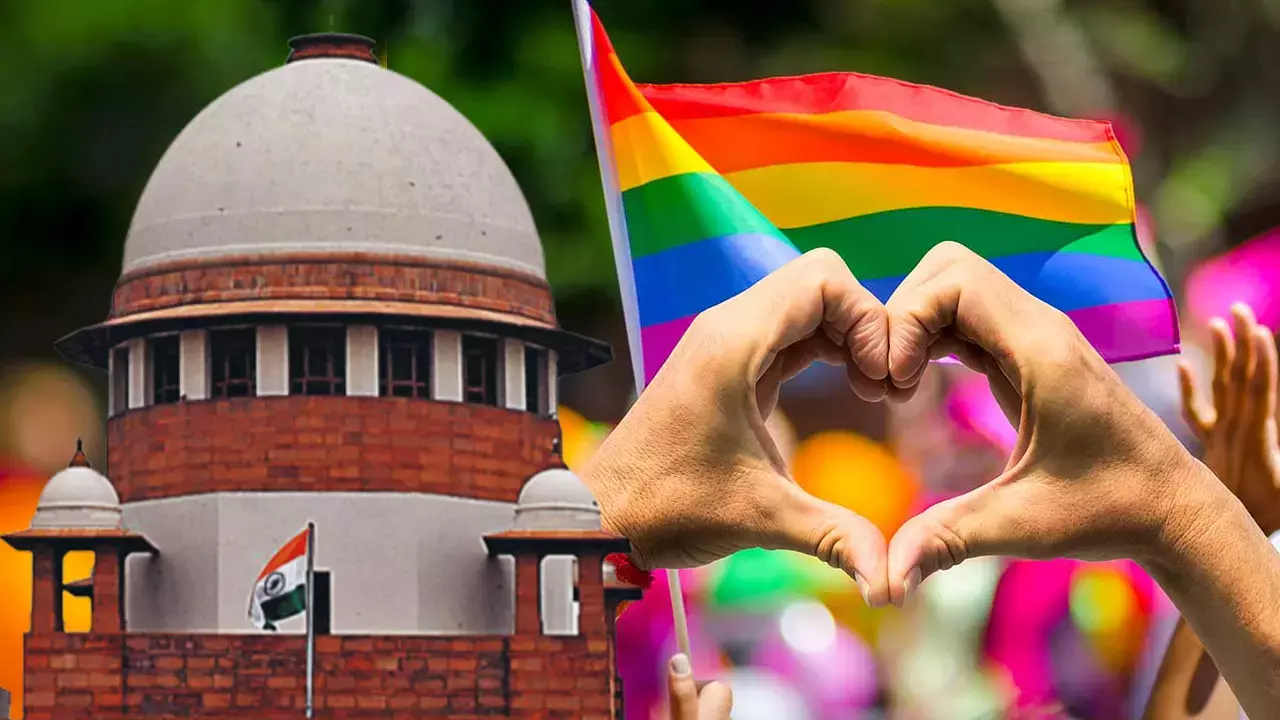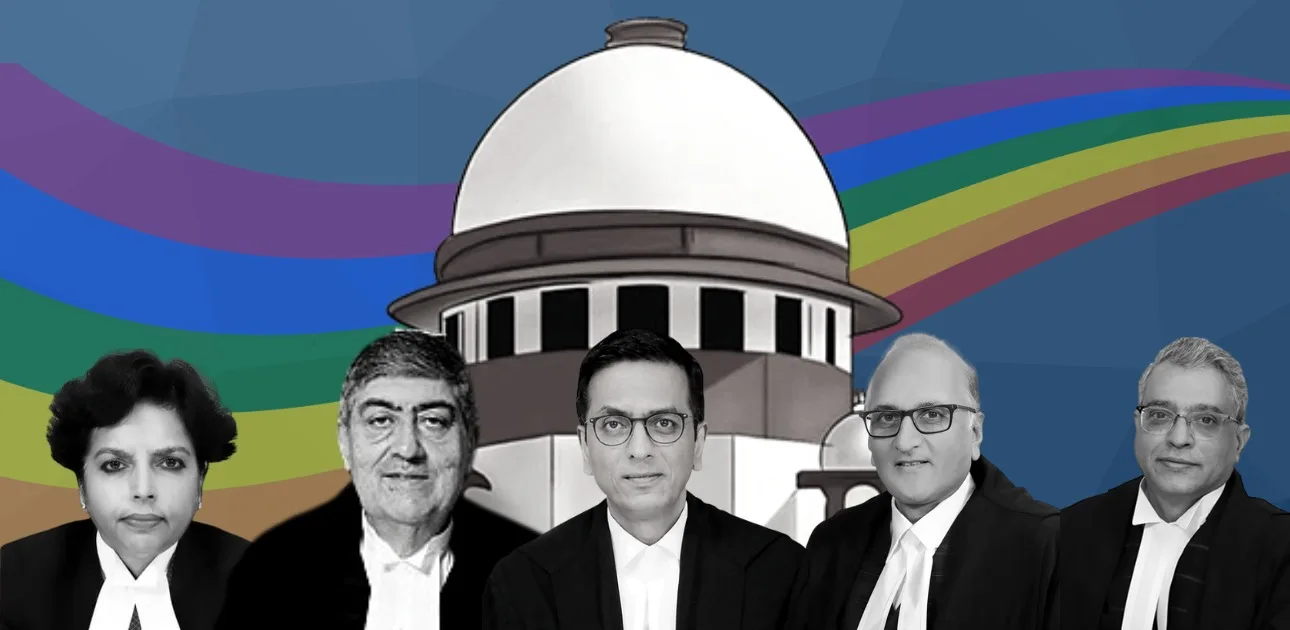Supreme Court in Supriyo vs Union of India judgment refused to recognize the right of marriage for same-sex couples
Supreme Court in Supriyo vs Union of India judgment refused to recognize the right of marriage
for same-sex couples.

The 3-2 majority decision stated that only Parliament and state legislatures can validate marital unions. The court also unanimously ruled that there is no fundamental right to marriage for same-sex couples.
The court said that it is beyond its scope to decide on same-sex marriages, and that it should be decided by parliament. However, the court emphasized that queer relationships should not face discrimination by the state.
Key highlights in Supriyo vs Union of India judgment
- Recognition to Right to Marry: Marriage is a statutory right not a fundamental right guaranteed by Constitution.
♦ Therefore, its recognition is a subject matter for Parliament and state legislatures and not of Court.
♦ Thus, court declined to strike down or tweak provisions of Special Marriage Act, 1954 and other allied laws to include same sex members within their ambit. - No to adoption rights: Court upheld the Regulation 5(3) of the CARA which precludes unmarried couples from adoption in the “best interest of the child”.
♦ Since ‘Same sex couples’ marriage is not recognised they are also precluded from adoption. - Civil unions for queer couples: Court cannot mandate the state to recognize a civil union.
♦ A “civil union” refers to legal status that allows samesex couples specific rights and responsibilities normally conferred upon married couples.
♦ US, Sweden, etc. had recognised civil union until same sex marriage was legalised in their country. - Other: Court favoured government’s proposal of a committee headed by Cabinet Secretary to look into entitlements for same-sex couples.
Previous judgments of SC for LGBTQIA+
- Navtej Johar (2018): Decriminalisation of same-sex relationships.
- K.S. Puttaswamy (2017): Recognition of the right to sexual orientation as an aspect of privacy.
- NALSA (2014): Recognition of transgenders as third gender.
Read about: India slips four places to rank 111 in Global Hunger Index (GHI) 2023
